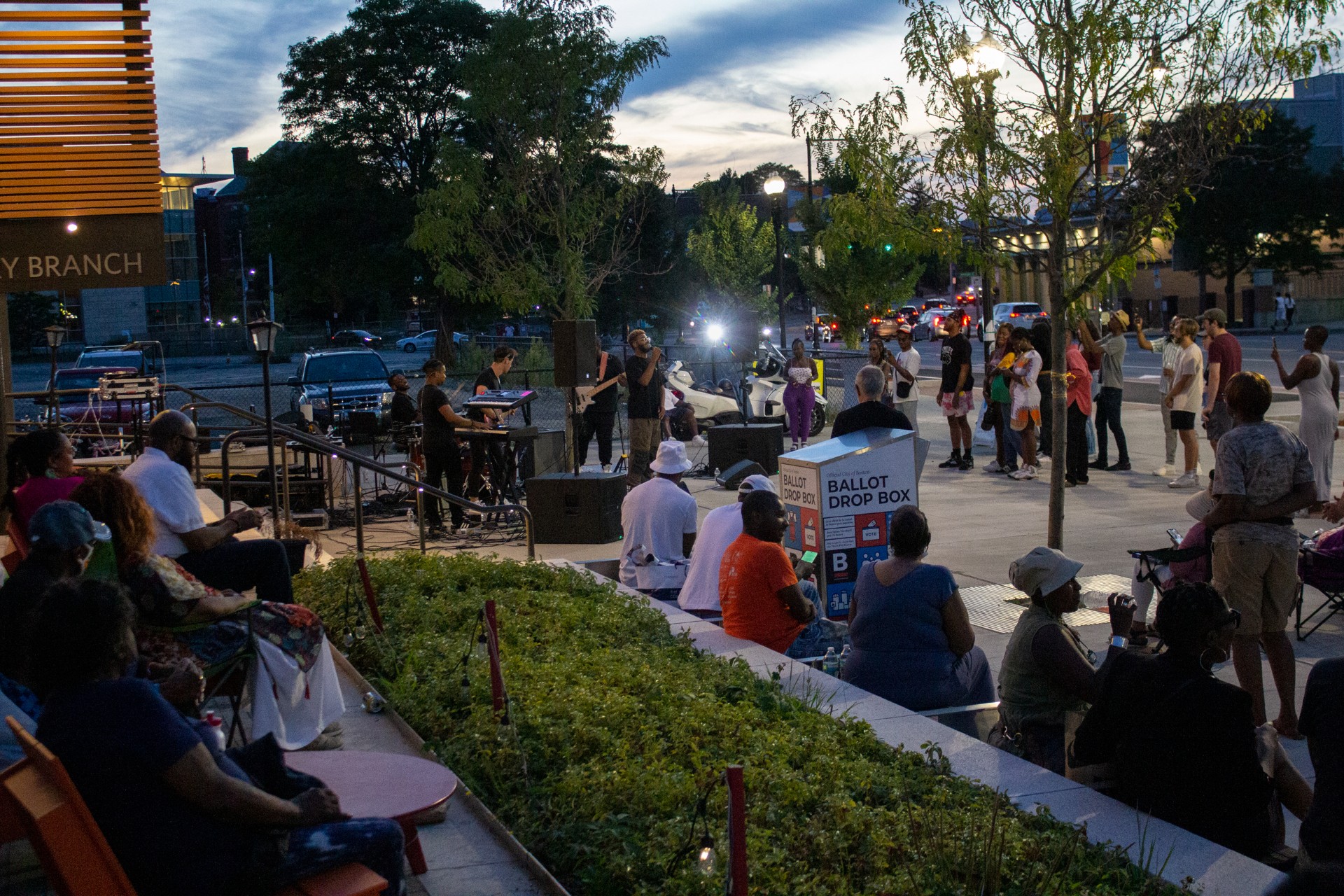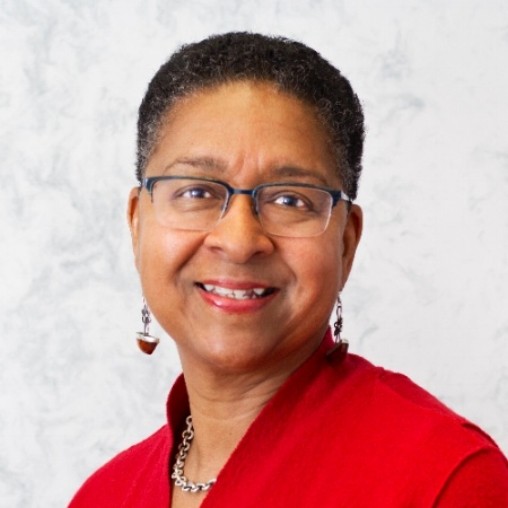
Scene from Nubian Nights music festival in Roxbury. Photo: Daniel Callahan.
COM’s Chunn Helps Spur Roxbury Culture Revival
Seven years have passed since the Roxbury Cultural District (RCD) was established, but for RCD Interim President and COM Professor of the Practice Kelley Chunn, the cultural story of the neighborhood is much longer.
As a “child of the ‘60s,” as she calls it, Chunn grew up in a time when the city was over 80% white, according to the U.S. Census Bureau. In her childhood, Roxbury was a center of African American culture, especially with prominent figures such as musician Roy Haynes and civil rights advocate Malcolm X leaving their marks on the neighborhood. The most influential of all for the arts, however, was Elma Lewis.
“When I was younger, Elma Lewis was considered the queen of culture in Roxbury,” Chunn said. “When you talk about arts and culture in Roxbury, it’s very hard not to keep Elma Lewis in the mix.”
A graduate of BU’s School of Education, now Wheelock, Lewis founded the Elma Lewis School of Fine Arts in Roxbury and launched numerous other opportunities for African American youth and creative intellectuals, including the National Center for Afro-American Artists and the Elma Lewis Playhouse in the Park, where performances and concerts are still held at Franklin Park.
With its artistic and cultural impact, Roxbury seemed like a perfect place for a registered cultural district, so designated by the Mass Cultural Council with support from the City of Boston. Neighborhoods with this designation are commercial districts with a strong arts and cultural presence, including Fenway, the Latin Quarter and Little Saigon. Chunn was the original consultant for the project and submitted the official proposals, but she said that the push for recognition took much longer.

“Arts and culture is not something new to the district,” Chunn said.
As the interim president of the RCD which encompasses Nubian Square and nearby John Eliot Square, Chunn is responsible for connecting with creatives and businesses to increase the presence of arts and culture in the neighborhood, with a focus on improving the area economically. RCD recently held its first arts and culture community convening to hear from residents about how to achieve these goals.
Chunn said RCD is also addressing the needs of artists and raising more awareness about arts accessibility.
“Artists need money and housing. We’re trying to advocate for housing for artists in the district,” Chunn said. “There’s also a misconception that there’s a high cost to attend community-based arts and cultural events. That’s a misperception we need to overcome.”
Although Chunn is not an artist herself, she loves the arts and participated in her church choir and glee club growing up, and her mother introduced her to museums and concerts. For her, the arts are like “therapy.”
“I really enjoy the discovery that you experience through art. It’s always new and always exciting,” Chunn said. “Even if you may not understand it, it challenges you in many ways.”
RCD has promoted arts-related activities as a way to “feed your soul” and “expose yourself to different forms of arts and culture expression.”
The arts have made Roxbury a space to come back to for many, even those outside of the neighborhood. While demographics have changed as the neighborhood has become more gentrified, organizations like the Museum of the National Center of Afro-American Artists, Hibernian Hall, The Bay State Banner, and The American City Coalition have remained important cultural resources. Soon the district will be home to new cultural organizations including the Community Music Center of Boston, the Jazz Urbane Cafe and the Greater Roxbury Arts & Cultural Center.
Even though Chunn has spent periods of her life outside of Boston throughout her career, including a few years in Nigeria, she has come back to the city and Roxbury, motivated by a strong urge to spark social change. Social progress has influenced her career, from starting as a broadcast journalist to becoming a consultant and opening her own public relations collaborative.
“When I take on a project, I always look at it through the lens of impact and social change,” Chunn said. “Like I said, a child of the ‘60s.”


